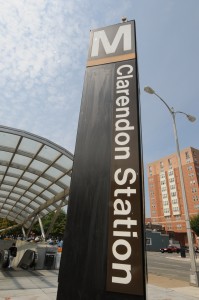
Last month, three Americans tackled a terrorist on a Paris-bound train. Their quick action saved lives but left many to question the security of U.S. mass transit systems. Could a similar incident happen here? What protections are in place to prevent it?
The questions above are the same ones asked by Congress in 2007. In 2005, terrorists killed over 50 people and injured hundreds more in the London underground system. Similar attacks occurred in Madrid and Mumbai. Clearly, vulnerabilities existed and Congress vowed to implement measures to protect the U.S. systems.
These measures are outlined in Title 14 of the Implementing Recommendations of the 9/11 Commission Act. Security plans, vulnerability assessments, and training. They are all required and I know this because I wrote the language. I was serving as senior counsel on the House Homeland Security Committee, and it was my responsibility to draft the language.
Imagine my surprise then when I discovered how unprepared the Washington Metropolitan Area Transit Authority (WMATA) was for a safety/security incident this year. In August, I was asked to participate in an exercise at the Stadium Armory metro stop. The exercise was designed to test the response capabilities of WMATA employees and fire fighters. WMATA failed.
I watched WMATA game the exercise. One of the participants was in a wheel chair. Her wheel chair wouldn’t fit through the doors between the rail cars so WMATA tried to put her in a smaller wheel chair before the exercise began. There was a small problem; she didn’t fit into the smaller wheel chair so WMATA officials were forced to use her regular one. First ding.
The second ding occurred when they put the lady in the wheel chair in the first car which made it easier to evacuate her during the exercise. The real world doesn’t work that way. Two years ago, my daughter and I were in the last car of a metro train when WMATA officials announced that we were being evacuated because of problems in the systems. Unfortunately, one of the passengers with us was in a wheel chair. His wheel chair wouldn’t fit through the door and he was stranded. Luckily for him, the evacuation that day was for minor malfunction but what would have occurred if there had been a fire?
The third ding happened last week. In the middle of rush hour traffic, WMATA abruptly discharged passengers at the Federal Center SW station. No reason was given. We were simply told to leave the trains. Thirty seconds later, firefighters appeared. But still, there was no announcement about how were supposed to leave the station. People were milling about as if it was a good idea to stay in the station while firefighters attempted to put out a tunnel fire. The absurdity of the situation left me shaking my head.
When I wrote the mass transit security mandates eight years ago, I thought mass transit systems like WMATA would expeditiously implement the requirements. We knew that vulnerabilities existed so surely they would do something. Nope. As I’ve seen repeatedly this past summer, WMATA isn’t ready to respond to a significant safety/security incident, and I’m not sure when they will be.
K. Denise Rucker Krepp, former Senior Counsel House Homeland Security Committee

